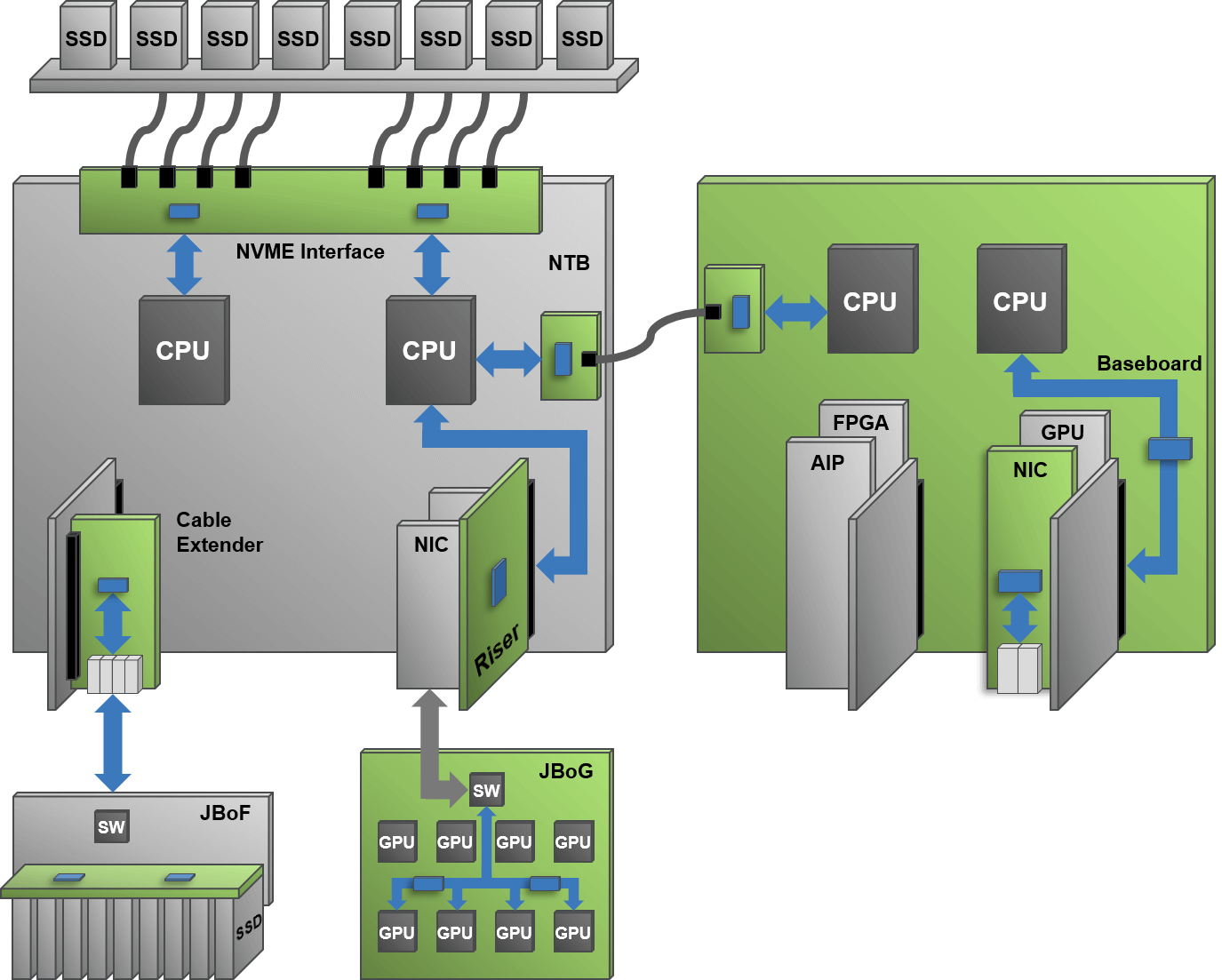Astera Labs Raises $50M Series C Round to Boost AI Connectivity in the Cloud

Three-year-old connectivity chip startup Astera Labs just secured $50 million in new Series C funding to help the company add two upcoming products to its portfolio while building out its development, support and sales teams.
Astera Labs presently offers its Aries Smart Retimer products, which are PCIe and Compute Express Link (CXL) cards and connectivity chips that are aimed at dramatically increasing connection speeds for AI workloads between GPUs, CPUs, AI chips, FPGAs and more.
With the additional funding, which follows $35 million in previous funding rounds, the company will begin sampling two soon-to-be-announced products and expanding its operations, Sanjay Gajendra, the company’s chief business officer, told EnterpriseAI.
“This particular $50 million is going into setting us up largely for a pre-IPO round,” while moving the two upcoming products past their advanced sampling stages and into production, said Gajendra. The money will also be used to scale up operations and better communicate the company’s products and technology in the marketplace, he said.
“This additional money would help us to accelerate our revenue, get ready for an IPO, and then essentially grow the team to support all of the development and interest that we have from the largest companies in the world,” said Gajendra.
The latest funding round was led by Fidelity Management and Research, which was joined by Atreides Management and Valor Equity Partners. The round also included existing investors Avigdor Willenz Group, GlobalLink1 Capital, Intel Capital, Sutter Hill Ventures, and VentureTech Alliance.
Astera’s Aries Smart Retimer portfolio for CXL 2.0 and PCIe 5.0 empower AI workload-optimized platforms in the cloud, while its future products aim to address connectivity bottlenecks throughout the data center with ASIC and module products aimed at speeding up data-intensive applications used in AI and machine learning.
Gajendra said the company has about 65 employees presently and expects to double that within a year at its Santa Clara, California, headquarters.
The Aries Retimer cards provide connectivity between, for example, a Habana Labs accelerator chip or an Nvidia GPU to SambaNova chips or other systems, he said.
“When it comes to the connectivity space, as far as developing connectivity, [Aries Retimers] are tailor-made for AI and machine learning applications,” said Gajendra. “We are sort of pioneering that space.”
The company’s chips are particularly suited to the AI marketplace, he said, because of the recent transition to more heterogeneous compute architectures, where there are specialized processors for AI and machine learning alongside traditional CPUs, SmartNICs and other hardware.
The new architectures “essentially create a system that is optimized for supporting various kinds of workloads, meaning a traditional workload goes in the CPU and an AI/ML workload goes on your AI processor and GPUs,” said Gajendra. “This is a fundamental shift in terms of how the industry is implementing compute going forward.”
Astera’s connectivity chips are manufactured for the company by TSMC.
A retimer takes a dirty signal – which can occur when data is traveling very quickly through cables and connections – and cleans it up, like a stereo amplifier can clean the “noise” up through an analog stereo system, he said.

Astera Labs Aries Smart Retimers can be used to overcome signal integrity issues for PCIe 4.0, PCIe 5.0, and CXL interconnects in servers, storage and other data center equipment. They can be connected via riser cards, extender cards or directly into PCIe slots. Image courtesy Astera Labs.
“Our story is that we develop connectivity solutions, but these are purpose-built for supporting AI and machine learning workloads, which are day and night different than traditional workloads that the industry has been servicing so far,” said Gajendra. “Our chips enable this transition and support the 2X and 4X bandwidth that is required to truly implement AI machines.”
The use of CXL connectivity is important because it allows wide versatility to plug multiple kinds of devices onto the same bus in servers, he said. “In some ways, you can call CXL the USB standard for server interfaces, where now you can connect a storage device and memory device and GPU or AI processor – or even memory – on top of the CXL bus.”
Lian Jye Su, a principal analyst with ABI Research, told EnterpriseAI that Astera’s high-speed interconnect products are crucial for use with resource-intensive cloud AI workloads.
“Another key strength of Astera Labs is its interoperability with different vendors,” said Su. “The company is vendor-agnostics and has developed multiple reference designs with different processor vendors, including Intel, Nvidia and AMD. This interoperability is essential for hyperscalers working with a wide range of hardware and software ecosystem vendors.”
Su said he is presently “not aware of an alternative for Astera Labs’ solutions in the hyper-scaler sector that offers a similar level of performance and interoperability. The $50 million in VC funding justifies its value and demonstrates the future potential of the company.”














